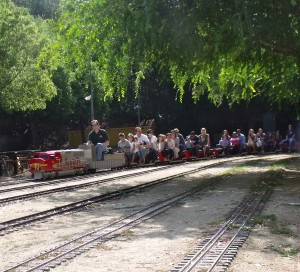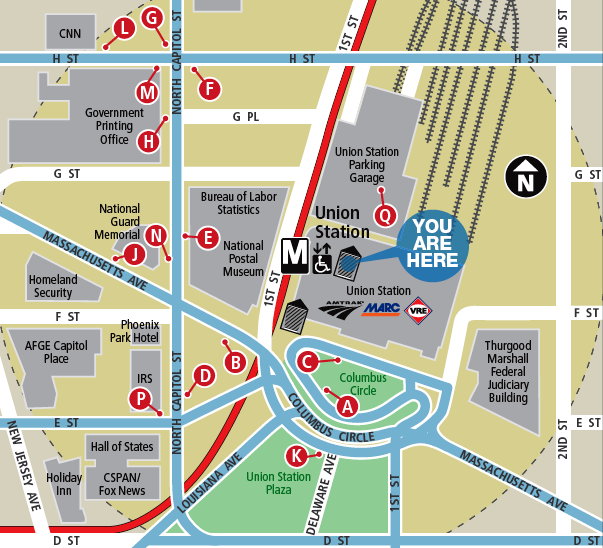
You know what they say; life is one big learning experience, and then you’re dead.
Here it is 15 years that Other Side has rolled in a GMC Sierra, and we’ve never once heard of a Sierra Club, or were invited to join it. And just this week we discovered they have a chapter right here in Maine! But you know how Mainers are; we like to keep to ourselves most of the time.

We made this discovery when we came upon a letter in the Sunday newspaper. At the same time, we learned that our stereotypical view of males being the ones who are afflicted with the ‘romance of the rails’ is somewhat outdated. Turns out there are also females afflicted with the syndrome. “We are women, here us wooo-oooo-wooo!”

We remember the old bromide “the only difference between the men and the boys is in the price of their toys.” We’ll have to send that off to our P. C. department for gender neutralization.
OK; so where were we? Oh yeah…a letter in the Sunday paper. Here it is for your edification:
Letter to the editor: Commuter rail service would be big energy saver
Kudos to Tux Turkel for his article “Power use tumbles as efficiency kicks in” (June 8), pointing out in detail to Mainers that efficiency is the answer to curbing energy use and lowering our carbon footprint.
In the wake of the Obama administration’s bold move to curb carbon emissions, now is the time to look at one of the biggest factors in climate change: tailpipe emissions. Road-based transportation is responsible for more than 28 percent of our global warming-causing pollution.
The regional transportation planning organization, PACTS, is now deciding how transit projects will be funded in the near future and beyond. As they contemplate the future of our region, PACTS members need to consider all modes of transportation, including passenger rail. With the success of the Downeaster, the Portland area needs to look at passenger and commuter rail.
With good planning, rail transit service can empower, focus and enable a successful urban area with human-scale mobility. We are not just an asphalt village. It is time to consider alternatives. It is train time.
Joan Saxe, executive committee, Sierra Club Maine
So where do we begin? How about with a few simple and obvious truths.
The writer refers to ‘the success of the Downeaster.’ Success? Well, it depends on what the meaning of is is. If by success you mean operating at a loss of nearly 50%; a variety of accidents and fires along the route; massive rework of trackage that was just rebuilt at huge cost, due to, of all things, winter in Maine; passenger loads of barely 10% of capacity from Portland North; then perhaps your definition is being met.
She also suggests that ‘all modes of transportation’ need to be considered. We agree. We assert that anything the Downeaster can do, modern day bus service such as Concord Coach can do far better, more efficiently, more flexibly, more helpfully (baggage help, anyone?), with virtually no special infrastructure investment or maintenance operations. And without burdening State Government with major fiscal liability.
Not only that, but buses currently in use can carry about 50 passengers, while they run far, far cleaner than Downeaster engines, as explained in this statement before the Brunswick Town Council last year:
Research of Clean Air standards for train locomotives, heavy trucks and buses such as the Concord Coach Buses has revealed the following; the “Downeaster” diesel locomotives are 60 times dirtier than heavy trucks and buses manufactured after 2007 when compared using the Fine Particulate Exhaust Emission standards, unless the “Downeaster” diesel locomotives have been remanufactured after 2010.
We doubt that Downeaster engines have been remanufactured. And we’re real sure Concord Coach buses don’t sit around idling for hours on end between runs. The engines may not have ‘tailpipes,’ but they spew the combustion residue of a 4,250 hp engine, while the buses are in the range of 300 hp. So if the writer is serious about ‘carbon footprint,’ she might want to look elsewhere. (We’re sparing you a repeat of the ‘go sell crazy somewhere else’ graphic this time around.)

Unless, of course, her sole motivation is love for the Choo-Choo, in which case there are other ways to indulge her affections.

Lastly, the writer asserts “rail transit service can empower, focus and enable a successful urban area with human-scale mobility.” We suspect she may have been to New York or Washington, DC once too often, and has developed a case of urban area envy, which is not often seen here in Maine.
If she thinks Portland qualifies as an ‘urban area’ in the mass transit sense, she better get a grip on things. As transportation professional George Betke, our recent guest columnist, recently remarked:
Maine is an inherently highway-dependent state for which passenger rail has very limited applicability due to lack of concentrated population centers or corridors.
There is related news to report vis-à-vis her suggestion. Today’s Portland newspaper has an article discussing a new commuter bus service proposal that would connect Portland to Cumberland, Yarmouth, and Freeport. You can read the article here:
http://www.pressherald.com/2014/06/26/new-commuter-bus-service-depends-on-towns/
A passage or three to pique your interest:
The proposed service is similar to the Zoom-Shuttle Bus inter-city bus service that currently connects Biddeford/Saco, Old Orchard Beach, Scarborough and Portland, according to the report.
It would cost $825,000 to purchase a fleet of four buses required for the service. It would cost $300,000 a year to operate the service, with fares providing $62,000 in revenue.
In Yarmouth, one of the stops would be the $1 million park-and-ride lot, which has 300 spaces. The lot has been mostly empty since it was opened last fall by the Maine Department of Transportation.
Take a look at the numbers for the bus, and the park and ride data, and you have no choice but to conclude that the average commuter has no taste for transport alternatives, even if they save $ and lower carbon footprint. Surely those devoted to the latter should be filling the Yarmouth lot by now.
Along with a generally dismal outlook for Amtrak’s deteriorating financial circumstances, and the Downeaster’s marginal performance vis-à-vis qualifying for continuing subsidies, we’d say something else is going to have to be devised to grab the interest and devotion of ‘the asphalt village.’
Or maybe some signs and guitars could help change the laws of economics and human nature.
If you can’t change those, there’s always the laws driven by coercive utopians. All you need to change them are pliable ‘public servants.’
Now, if we could just find the details on that club for Sierra drivers……
No comments:
Post a Comment